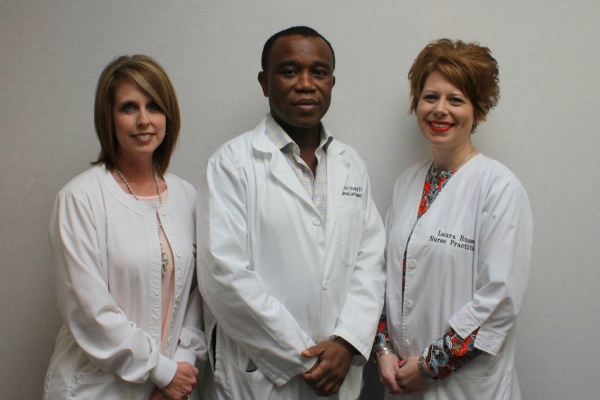
--
Dr. Kofi Nuako, a gastroenterology expert and director of the Summit Endoscopy Center, published a research that shows the increased risk of occurrence of colorectal cancer in people with cancer in their family history. Risk factors that are usually stated include age, race, a sedentary lifestyle leading to obesity, smoking, among others.
Dr. Nuako investigated the risk factor of familial predisposition (concerned with family history) and found high incidences of colorectal cancer in individuals with family histories of colorectal cancer.
Recent statistics on new cases of colorectal cancer by the American Cancer Society show that an estimated 95,520 new cases of colon cancer and 39,910 new cases of rectal cancer are expected in 2017. As such, Dr. Nuako advises people with incidences of colorectal cancer in their families to get screened as early as possible.
Colorectal cancer in the United States is ranked third among the top common cancers diagnosed among both men and women. In Dr. Nuako’s research, 147 colorectal cancer patients gave reports on 1044 relatives. Among these relatives, it was found that 14.3% of them also had colorectal cancer.
On the other hand, 150 cancer-free patients gave reports about 1090 relatives. Among these, 6.7% were found to have colorectal cancer. That confirmed that a family history of colorectal cancer is a risk factor that should be taken into account.
Dr. Nuako further explains that colorectal cancer is a preventable condition, and urges people to investigate their family trees, and even warn their loved ones to get screened early if a relative presented with the condition.
“Early detection is a surefire way of preventing colorectal cancer and this is achieved through colonoscopy,” he said.
In the past, colorectal cancer was mostly diagnosed among people above 50 years and people were advised to get screened as soon as they hit 50. Unfortunately, this has changed dramatically, and the number of colorectal cancer cases among younger individuals is alarming.
Recent studies by the American Cancer Society show a decline in colorectal cancer incidence among people 50 years and older, and an increase in incidences among people in their 20s and 30s.
“I highly encourage people to get a colonoscopy screening for colon cancer to ensure their colon is in good condition for a longer and healthier life.” Dr. Nuako advises.
More details about colonoscopy and other services that Dr. Nuako provides can be accessed at http://www.ucgastro.com/services/
Release ID: 241582

